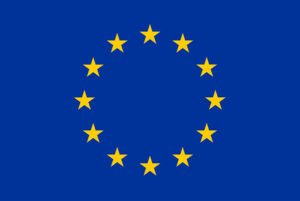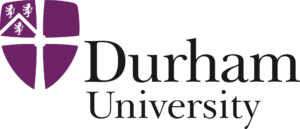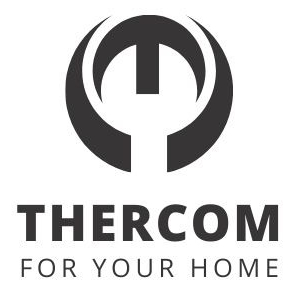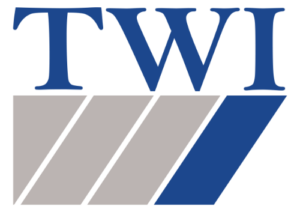AI-Powered VR Construction Training Environment and Platform

The construction industry faces ongoing challenges related to worker safety, skills shortages, and rising training costs. Traditional classroom-based training methods are often ineffective and fail to realistically simulate hazardous job sites. Current off-the-shelf training platforms also demonstrate several limitations that make them ill-suited to the needs of construction contractors.
Most platforms do not accommodate the mobile nature of construction work. On average, only 15% of workers in the sector have reliable internet access at job sites, preventing the use of online courses for the majority (85%) of the workforce. In-person classes also prove infeasible, as scheduling around fluctuating project timelines results in an average attendance rate of just 25% for external courses. Contractor needs are also not adequately addressed, with standard training modules found to cover only 30% of specific skills, processes, and equipment used on job sites. As a result, engagement is low, with 70% of construction workers reporting boredom or lack of relevance with generalised e-learning formats.
This project aims to develop an immersive virtual reality (VR) training platform powered by artificial intelligence (AI) to help address these challenges. The platform will utilise project-specific realistic 3D modelling of sites and specialised scenarios tailored to different construction sectors such as building, infrastructure, energy, and heavy civil. A variety of health and safety, equipment operation, and job-specific training scenarios will be developed for each sector.
AI techniques such as computer vision and natural language processing will be incorporated to provide individualised feedback to workers on their performance. Trainees will also be able to practice communication, problem-solving and teamwork skills through multi-user VR functionality. By delivering interactive, skills-based training in a safe virtual setting that is accessible anywhere via VR hardware, this platform expects to significantly improve worker preparedness, safety, and retention within the industry.

AI-Based Health and Safety Training in Offshore Construction

The offshore construction industry stands at a pivotal juncture. With a staggering 565,000 incidents and 123 fatalities reported in 2021/22, the urgent need for enhanced safety standards is palpable. Traditional approaches to health and safety training are no longer sufficient. Enter SafeSite – our groundbreaking solution designed to revolutionise the landscape of offshore safety training.
In collaboration with Core Systems Software Ltd and V-LAB Ltd, SafeSite is an AI-driven health and safety tool that harnesses the immersive power of Virtual Reality (VR). This unique fusion of AI and VR promises to elevate not just the safety standards but also the operational efficiency of offshore construction. Some of its hallmark features include an innovative AI-powered model-making procedure, which seamlessly transforms 3D scans into high-definition Building Information Modelling (BIM) models. Furthermore, our proprietary AI scenario creator meticulously crafts bespoke health and safety training content that’s tailored to resonate with the specifics of individual offshore locations. This ensures an accurate, relevant, and engaging training experience. Complementing these features is an immersive VR environment enriched with an AI voice tutor and customisable avatars, setting the stage for an interactive and unparalleled learning experience.
But SafeSite’s vision transcends beyond its features. It embodies a broader ambition: to align with and contribute to the UK’s audacious goal of amplifying offshore wind output to 40GW by 2030. By integrating our cutting-edge solution with the nation’s green energy aspirations, we aim to sculpt a safer and more sustainable future for the offshore construction industry.

Birmingham Building Inventory for Retrofit Demonstrator
The BrumBIRD project aims to create a detailed data inventory for specific areas in Birmingham, focusing on the retrofitting of buildings to enhance their thermal efficiency. This initiative is key to transitioning buildings to a net zero energy system and reducing energy costs for residents. Initially targeting select areas, the project has the potential to expand to larger regions in the future. A significant aspect of BrumBIRD involves the strategic partnership with V-LAB. V-LAB utilises drone technology to conduct aerial surveys along streets in the target areas. These surveys include photogrammetry measurements to gather detailed data on the buildings’ current state and infrared imaging during the winter to identify poorly insulated structures and cold bridges. This approach will provide critical insights into the retrofitting needs of each area surveyed. The project is led by the University of Birmingham and includes collaborations with various partners, such as Acocks Greener, MECC Trust, Places in Common, and V-LAB. BrumBIRD aims to be a pioneering project in urban sustainability, significantly contributing to the reduction of the carbon footprint by improving the energy efficiency of buildings in Birmingham.
Demonstrators of Energy Applications

The SAREF-THERCOM project seeks to enhance energy management through a user-focused approach, marrying energy efficiency with user comfort. Building on the THERCOM app, it aligns seamlessly with InterConnect’s objectives, championing sustainable energy usage whilst ensuring user satisfaction.
As Europe moves towards a sustainable future, with the UK in particular setting ambitious goals like zero carbon emissions by 2050, there is a pressing need for sophisticated solutions. These solutions must address the challenges presented by the increased electrical demands from both heating and electric vehicles. The SAREF-THERCOM system tackles the current shortfall in consumer awareness regarding the impact of their energy consumption. By offering users insights into their energy patterns, it promotes efficient energy practices and encourages consumption during off-peak periods, leading to considerable cost savings and a reduction in greenhouse gas emissions. The initiative also emphasises the significance of synchronising energy consumption with periods of renewable energy production, thereby optimising energy utilisation.
To actualise these aspirations, the project has delineated a series of pivotal developmental steps. These encompass the integration of the THERCOM system with various APIs, real-time data collection from smart meters, the grid and domestic IoT sensors, and the creation of sophisticated algorithms for bespoke energy recommendations. The endeavour will also give precedence to semantic interoperability with other stakeholders in the energy sector, fostering a cohesively interconnected and efficient energy ecosystem. Through rigorous collaboration, research, and validation, including pilot schemes in over 30 UK locations, SAREF-THERCOM aspires to illustrate the myriad benefits of improved energy management and consumer engagement.


THERCOM Entry Market and Promotion Optimisation

This project forms part of the Durham University Business School’s Strategic Business Project. The initiative seeks to address significant business challenges or areas for strategic development, catering to both internal and external needs. The programme sets out to identify strategic development areas and culminates in an exhaustive strategic report complete with recommendations tailored for your enterprise. The consultancy process embodies a tripartite collaboration between our School, the student, and your organisation. It presents an optimal avenue for addressing strategic business challenges. In exchange, you offer our students an opportunity to conduct a detailed and methodical study of a contemporary business issue, leveraging insights from their academic curriculum.
The primary objective of the TEMPO project is to devise and enact a potent market entry and promotional strategy for THERCOM. THERCOM is an intelligent thermostat control application designed to diminish energy usage while enhancing thermal comfort. Its development has garnered support from Innovate UK, and prototype testing is presently underway. THERCOM distinguishes itself as the inaugural controller that directly correlates user experience with the environment, bestowing upon consumers a unique modulatory prowess. It is unparalleled in its capability to tweak setpoints in a bid to maximise the overall thermal comfort of a room — a feat no other controller in the market has achieved. Augmenting energy efficiency stands as a cardinal objective for our society, pivotal in mitigating detrimental environmental repercussions.
TEMPO will encompass a meticulous analysis of the target market, taking into account facets like consumer behaviour, inclinations, and prevailing trends. Additionally, it will evaluate the competitive landscape and the contemporary market scenario.

Intuitive Thermal Comfort Controller

Guaranteeing an optimal level of thermal comfort can increase productivity and quality of life. ‘THERCOM’ project will facilitate the development of a new paradigm in indoor climate control to ensure optimal thermal comfort. The control development will focus on three characteristics: improving user experience, increasing energy efficiency and consistency with the technological revolution.
‘THERCOM’ will offer an innovative user experience by implementing intuitive interaction between the occupant and the controller. The controller will apply thermal comfort theory and, based on the European and UK standards, bring an improvement to the user experience.
‘THERCOM’ will be the first controller to directly relate to the user experience and the environment, providing consumers with a unique control. The controller will optimise the expediency of most of the room users: no other controller in the marker is able to adjust the setpoints to optimise the general thermal comfort level of the room. Increasing energy efficiency is one of the principal objectives of our society to decrease the negative impacts on the environment. ‘THERCOM’ will generate the opportunity to increase thermal comfort and optimize energy consumption. Internet of Things offers for the first time in human history the opportunity to provide ‘intelligence’ to objects. The new technologies try to improve the human quality of life, and thermal comfort is one area with immense potential to apply ‘smart’ controllers. Using the theoretical knowledge of thermal comfort, empirical data, international standards, and innovative hardware, ‘THERCOM’ project seeks to create a new paradigm in the indoor climate controller world, based on people, and adapting to personal prophecies, the human being has to be the focus of the advances that seek to reach net zero because it is the humans who consume the energy.
Motivated people are the most powerful force in the world. ‘THERCOM’ is able to motivate people to reduce their energy consumption through competition, rewards, feedback, and other gamification concepts, utilising all the power of motivated people. With this in mind, the possible positive impacts of this project are immense.
Find out more about THERCOM at www.thercom.net.

Catalyzing the Employability and Entrepreneurial Impact of Nigerian Engineers in the Electricity Industry to Strategically Improve Access to Electricity
The international collaboration project aims to improve engineering capacity in Sub-Saharan Africa by enhancing the knowledge, skills, capacity and employability of African engineering graduates.
The initiative includes:
- Establishing strong and long-term collaboration between the electricity industry and the school of engineering of all the participating universities as a strategic way to improve the skilled workforce in the Nigerian industry.
- Providing a more enabling environment for practical engineering education and research activities that will bring about more insights into some engineering topics in the participating universities. This is important because it is on record and backed by research that in Nigeria, a practical approach to engineering education helps a lot of engineering students, predominantly female engineering students, understand engineering concepts better, which builds on the research and innovation capacity of higher education institutions across the nation.
- Providing a unique platform for industry secondment for students and secondment opportunities for faculties in the partnering companies leads to a cross-pollination of skills, knowledge and ideas between the participating universities and industry partners. The resulting end is an improved knowledge capacity through knowledge sharing, highly developed skills through workshops and training and graduation of employable Nigerian engineering graduates and entrepreneurs that will play a vital role in improving access to electricity for over 80 million Nigerians.
The project is supported by the Royal Academy of Engineering (RAEng) Higher Education Partnerships in sub-Saharan Africa Programme (HEP SSA), backed by the Anglo-American Group Foundation and the UK Government through the Global Challenges Research Fund.

Low Carbon Solent: V-LAB Innovation
The Low Carbon Solent is an SME support project. It combines the knowledge and expertise of the University of Portsmouth – lead partner, the University of Winchester and the cleantech cluster, Greentech South. Through this project, SMEs can access postgraduate student projects, and innovation support and networking events.
Materials Integrity Technology Transfer (MITT)
The Materials Integrity Technology Transfer (MITT) programme was a business support scheme geared to help companies such as V-LAB in the Tees Valley region (Darlington, Hartlepool, Middlesbrough, Redcar & Cleveland, and Stockton-on-Tees) overcome technology challenges and barriers to growth and success.


Tees Valley Innovation Accelerator (TIA)
TIA enabled companies such as V-LAB in the Tees Valley to leverage public funding and have access to consultation and prototyping services, thereby maximising their potential to exploit new technological concepts. This was a publicly funded service to Tees Valley SMEs to support/accelerate the transformation of SME innovations into commercial products, services or processes.


Business Start Up
This project was funded by Anglo American and is designed to support new business start-ups based in Redcar and Cleveland. The grant supports businesses which have the potential to contribute to Redcar and Cleveland’s economy through business activity. This is interpreted as carrying on a trade or profession or buying and selling goods or services in order to generate turnover.


Graduates for Growth – TU-V-LAB
The Teesside University’s Graduates for Growth programme, which is financially supported through the European Regional Development Fund (ERDF), works with SMEs in the Tees Valley to recruit talented graduates as either fully-funded interns or part-funded employees.
Graduates for Growth allows companies to develop new-to-company products, processes or services to contribute to their growth. Interns can be with you for a fully-funded 12 week graduate internship and employed by Teesside University.
Such a programme provides a customised approach enabling:
- Access part-financed graduate talent for short-term projects
- Trial prospective new employees and recruit a recent graduate
- Get new knowledge, skills and technological know-how to increase your performance, productivity and competitiveness
The aim of Graduates for Growth is to drive forward projects in the organisations.
This project is part-funded by the European Regional Development Fund as part of the European Structural and Investment Funds Growth Programme 2014-2020.


Accelerator Programme

The DigitalCity Accelerator programme is to accelerate the growth of early-stage tech companies in the Tees Valley that are in the process of launching or planning to launch new to market products and services. Delivered by a team of digital industry experts, the Accelerator Programme consists of seven highly interactive weekly workshops and bespoke coaching and mentoring.




